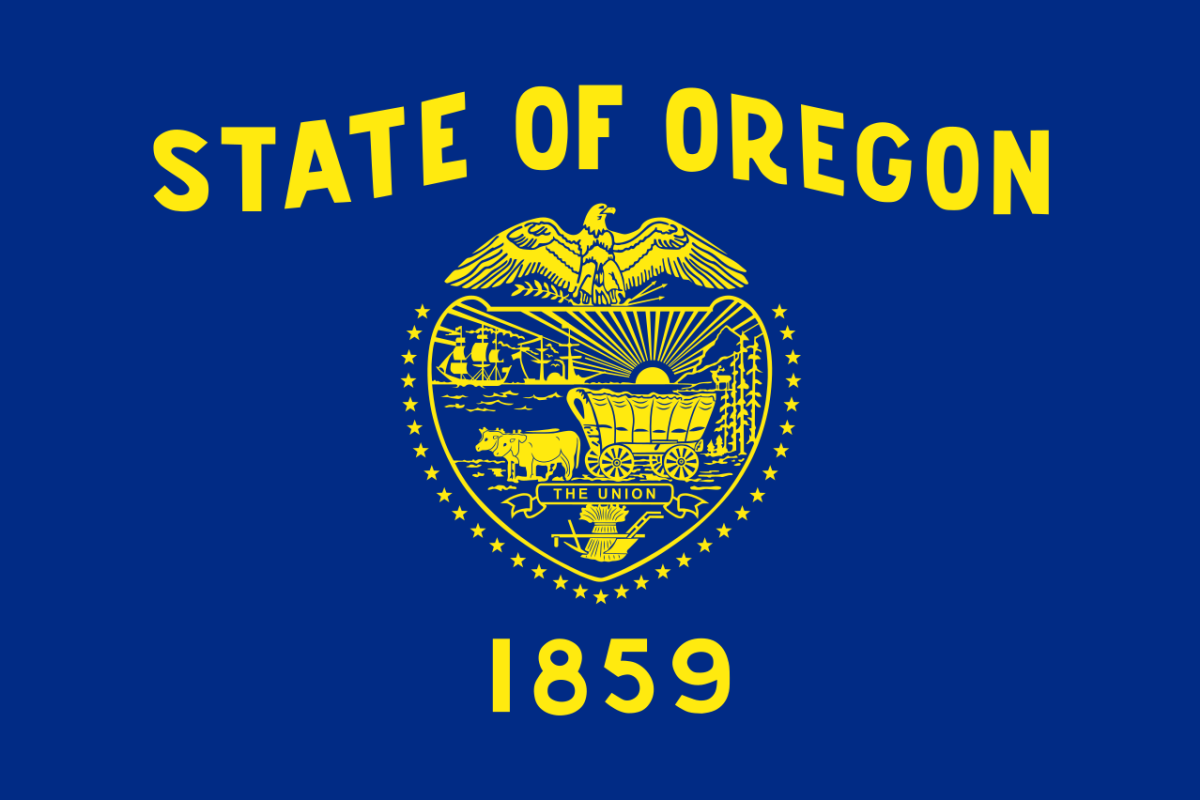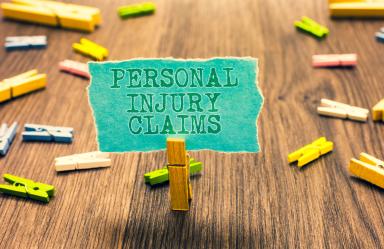Oregon Personal Injury Laws

When a person is injured in Oregon because of someone else’s fault or negligence, the law gives them the right to seek damages from the party responsible for their injuries. This matter of defining the legal rights of injury victims and the process of obtaining compensation for damages is within the scope of personal injury law.
However, the rules for recovering damages are not always straightforward. The injured party must meet certain requirements to receive compensation for their losses. Thus, it is important to understand how personal injury law operates in a specific state, such as Oregon.
The most common personal injury claims in the Beaver State include car accidents, dog bites, unsafe premises, and defective products. If you have been on the receiving end of these incidents, this article will help you know the rules that are critical to most personal injury cases. It can serve as a guide to obtaining the compensation you deserve for your injury-related damages.
Oregon Car Accident Personal Injury Claims
Motor vehicle accidents can cause catastrophic injuries, such as brain and spinal cord injuries, burns, loss of limbs, paralysis, and permanent disability. So, aside from having wrecked vehicles, the parties involved in a collision also have to deal with medical bills, lost time off work, missed wages, and other financial losses. There lies the underlying question–who will pay for these damages?
Personal Injury Protection
Oregon motor vehicle crash data shows that there were 38,141 road accidents in the state in 2020. This clearly underlines the importance of insurance for drivers.
Auto insurance policies issued in Oregon include PIP. This type of auto insurance coverage pays for the policyholder’s medical care in the event of an accident. The minimum PIP coverage in Oregon is $15,000 per person. Here’s some more information about PIP:
PIP is a no-fault medical insurance policy. It does not matter who caused the accident. Even if the policyholder is to blame for the crash, they remain eligible for PIP benefits.
PIP covers the claimant’s medical expenses up to the limit of their policy or for two years from the date of the accident, whichever comes first.
PIP covers both injured passengers and drivers. If the driver is not the owner of the car, they are still entitled to PIP benefits as long as they were driving it with the owner’s permission.
Injuries to pedestrians are generally only covered if the victim has no other health insurance policy.
Health Insurance
The minimum PIP coverage may not be enough to pay for the injuries and damages resulting from a car accident. If you find yourself in a situation where your PIP limit has been exhausted, you can turn to your health insurance provider to cover medical bills. Claiming health insurance benefits, however, is not simple because some insurers will not pay up unless you have the following:
Proof that you have used up your PIP benefits; and
Agreement that you will reimburse the health plan after collecting compensation from the at-fault party or their insurer.
Liability Insurance
Motor vehicle operators in Oregon are required to have liability insurance coverage unless they are exempted by law.
Driving without liability coverage is a class B traffic violation, according to Oregon Revised Statutes 806.010. The driver could face hefty fines and even get a license suspension as a penalty for driving uninsured.
A person injured in a car accident can file an insurance claim for compensation. Here are some facts about liability insurance that are critical to recovering damages:
Liability insurance pays for the medical expenses and other damages of the injured parties in a crash, excluding the policyholder.
Establishing who is at fault for the accident is necessary for a successful claim. The claimants must have sufficient evidence that the policyholder’s negligence caused the accident; otherwise, their claims may be denied.
The insurance company will conduct its own investigation of the accident. It will examine evidence like medical records and witness testimony to determine whether the claim is valid.
Insurance representatives are likely to make every effort to protect the insurer’s interests, including offering a settlement that is less than what the victim deserves. If you are a car accident victim, hiring an experienced personal injury lawyer to protect yourself from unfair settlements is an idea worth considering.
Note that in Oregon, you also have the option to go to court and file a personal injury lawsuit against the at-fault driver. If you are still receiving treatment for your injuries, you can apply for Oregon Health Plan benefits. The state will then file a personal injury lien on any settlements or court judgments to recoup the medical payments made on your behalf.
Oregon Dog Bite Law
Oregon applies the concept of strict liability in dog bite cases. Under the strict liability rule, a person injured by someone else’s dog is entitled to compensation, whether or not the dog owner knew that their pet would bite.
In other words, the plaintiff does not need to prove that their injury was due to the dog owner’s negligence. The law makes the dog owner automatically liable for the victim’s financial losses, such as medical bills, past and future lost earnings, and other injury-related losses.
However, should there be any evidence that the dog owner was negligent — meaning they did not use reasonable care to confine or restrain the animal — the plaintiff may be entitled to all losses resulting from the injury. These include non-economic damages like pain and suffering.
Dog owners who let their pets roam free despite laws prohibiting “at large” animals in public areas may also be deemed negligent and liable for their pets’ actions.
The definition of “dog at large” varies among cities and counties in Oregon. A personal injury attorney can help dog bite victims understand local regulations and how they impact their claim for damages.
Oregon Premises Liability Law
Oregon property owners have a legal obligation to keep visitors or guests on their premises safe. If the owner fails to fulfill their duty to maintain a hazard-free environment for guests, they can be held responsible for injuries that occur on their property.
This refers to the legal concept of premises liability. It is applicable whether the incident that caused the injuries takes place on private property or at a place of business.
Thousands of premises liability claims are filed in Oregon every year. Premises liability law covers cases like slips and falls, swimming pool injuries, elevator accidents, inadequate security, and construction or contractor negligence.
Property owners have the option to buy liability insurance so that if a guest, for example, slips on a wet floor on their premises, the insurance will cover the injured party’s medical bills.
Generally, trespassers cannot claim compensation if they get injured on a property that they are not permitted to enter. A business operator or homeowner has no legal obligation to make their premises safe for intruders. But they cannot create hazards for trespassers on purpose.
If you have a premises liability claim, proving a property owner’s negligence can be quite challenging. But a personal injury attorney can help identify and gather the evidence needed for a successful case.
Oregon Product Liability Law
Oregon law protects consumers by giving them the right to sue for damages caused by defective products.
Under ORS 30.900, if a faulty product causes personal injury, property damage, or death, the victim may bring a product liability civil action against the manufacturer, distributor, seller, or lessor of the product.
The plaintiff in a product liability lawsuit must prove the following to hold the defendant liable for damages:
The defendant made, distributed, or sold the product.
The product had defects and was unreasonably dangerous.
The product was not altered before it was sold to the injured customer.
A common defense in product liability cases is that the sales contracts or packaging contained disclaimers or limitations of liability for damages. Even if these facts are established at trial, they usually fail to free the defendant of liability, especially if the defective product is for household or personal use.
Settlement Amounts in Oregon Personal Injury Cases
The compensation for damages that a personal injury plaintiff in Oregon may receive depends on several factors, including the following:
The severity of the injury: For example, the average payout for Oregon car accidents that involve minor injuries is $5,971. For cases with severe injuries, the average settlement amount is $373,940.
The state’s shared fault rules: Compensation for Oregon injury plaintiffs may be reduced if they are partially at fault. The deduction is equal to the plaintiff’s share of the blame. But if the plaintiff is more than 50% at fault, they will receive nothing under the state’s modified comparative negligence rule.
Caps on injury damages: There is no law that limits the damages that Oregon personal injury plaintiffs can recover, except in a few cases, such as:
Non-economic damages for wrongful death: If a victim dies from their injuries, their surviving family members are entitled to not more than $500,000 in non-economic damages. These types of damages include loss of companionship, care, comfort, and society, as well as loss of consortium.
Claims against public bodies: Under the Oregon Tort Claims Act, the limit on compensation depends on the date of loss, the type of damage, and the number of claimants. This table lists the caps on injury damages recoverable in claims against the state government.
Punitive damages: There is no clear-cut answer on whether punitive damages are capped in Oregon. But there are cases in which the Oregon Supreme Court reduced the punitive damages awarded to the plaintiff because it found the amount unconstitutional.
Statute of Limitations for Personal Injury Claims in Oregon
The law sets a time limit for filing a civil action in Oregon. This time limit is known as the statute of limitations.
Personal injury lawsuits in Oregon generally have a two-year statute of limitations. This means that the injured person must bring a lawsuit within two years of the accident that caused their injuries. If the victim misses the deadline, they will lose their right to pursue damages from the at-fault party.
Where an accident led to the death of the injured person, the time limit for filing a wrongful death claim is three years. A court-appointed personal representative of the decedent’s estate has the sole authority to file the claim. Thus, a personal representative must be appointed without delay; otherwise, there is a chance that the statute of limitations could run out, and the defendant will likely use the situation to move for a case dismissal.
Legal Resources for Oregon Personal Injury Victims
OregonLaws
Rob Shecter created this online legal resource when he was in law school. It allows law students and researchers to look up Oregon Administrative Rules and Oregon Revised Statutes that are related to their cases. Users can type in the site’s search box the ORS section number or a keyword associated with the subject of their inquiry, for example, “product liability.” The results will direct users not only to the text of the law but also to a set of annotations. Based on previous court cases, these annotations help readers better understand the law.
Oregon State Bar
Part of the Oregon State Bar’s mission is to make justice more accessible. Thus, its website has content for the public that covers a wide range of topics, from Oregon’s legal system to specific practice areas like traffic law and auto accidents. The bar also has a lawyer referral service to help those who need legal advice. For moderate-income individuals, the bar offers reduced rates, and for deployed service members and their families, legal advice is available at no charge for up to two hours.
OregonLawHelp.org
Low-income individuals and seniors in Oregon can go to this website to apply for free legal services. This guide has the support of legal aid organizations across Oregon that work together to provide low-income communities with legal advice on civil law matters.
Oregon Department of Human Services
Members or beneficiaries of the Oregon Health Plan and Temporary Assistance for Needy Families are required by law to notify the Oregon Department of Human Services if they have been injured in an accident and are pursuing a claim against the responsible party. This page on financial accuracy and recovery contains Frequently Asked Questions on reporting an injury and filing insurance claims. Forms are available on the page for the patient, their attorney, the Coordinated Care Organization, and the insurance adjuster to fill out when reporting an injury.
Oregon Trial Lawyers Association
OTLA has been representing the interests of workers and consumers for more than five decades. This non-profit organization focuses its advocacy on Oregonians’ civil justice rights. There are more than 900 lawyers on its member roster, many of whom are personal injury attorneys. OTLA can be reached by email at otla@oregontriallawyers.org or by phone at 503-223-5587. It is located at 812 SW Washington, Ste. 900, Portland, OR 97205.
Expertise.com StaffAuthor
Step into the world of Expertise.com, your go-to hub for credible insights. We don't take accuracy lightly around here. Our squad of expert reviewers, each a maestro in their field, has given the green light to every single article you'll find. From rigorous fact-checking to meticulous evaluations of service providers, we've got it all covered. So feel free to dive in and explore. The information you'll uncover has been stamped with the seal of approval by our top-notch experts.




